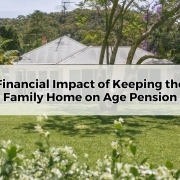Financial Support Options for Low-Income Aged Care Residents
Table of Contents
ToggleNavigating the financial complexities of aged care can be daunting, especially for low-income individuals. Understanding available support mechanisms ensures that older Australians receive the care they need without unnecessary financial stress. This guide explores various financial assistance programs, government subsidies, and strategic approaches to managing aged care costs.
Aged Care Costs
Aged care expenses vary widely depending on the type of care required. Residential aged care facilities charge a combination of daily care fees, accommodation payments, and additional service costs. These expenses can quickly accumulate, making affordability a primary concern for low-income individuals.
The primary costs associated with aged care include:
- Basic Daily Fee – Covers living expenses such as meals, cleaning, and utilities. This fee is capped and regulated by the government.
- Means-Tested Care Fee – An additional contribution based on an individual’s financial capacity.
- Accommodation Costs – The amount paid for a place in a residential aged care facility, which varies by provider and location.
- Extra Service Fees – Optional payments for enhanced services or amenities.
For those with limited financial resources, government assistance programs and strategic planning can significantly reduce these costs.
Government-Subsidised Aged Care Programs
The Australian Government provides extensive financial support to make aged care more accessible. The Aged Care Funding Instrument (ACFI) determines the level of government subsidy provided to residential care facilities based on a resident’s care needs. Other support programs include:
- Commonwealth Home Support Programme (CHSP) – Assists seniors living independently with subsidised home care services.
- Home Care Packages (HCP) – Provides tailored funding to support in-home care for eligible individuals.
- Residential Aged Care Subsidies – Covers a portion of residential care costs based on financial assessment.
These programs help alleviate financial burdens, ensuring that low-income seniors receive essential care without undue financial strain.
Means-Tested Aged Care Fees and Concessions
The means-tested care fee applies to residents who can afford to contribute toward their aged care costs. However, income and asset thresholds determine the extent of an individual’s contribution.
Key factors affecting means-tested fees include:
- Income Assessment – Pension and other income sources determine financial capacity.
- Asset Valuation – Home ownership, savings, and investments impact aged care costs.
- Fee Caps – Annual and lifetime limits restrict excessive charges.
Low-income residents benefit from substantial fee reductions and may qualify for additional concessions that further decrease financial obligations.
The Role of Centrelink in Aged Care Support
Centrelink administers key financial support measures, including:
- Age Pension – Provides foundational income for retirees.
- Rent Assistance – Supports those paying for aged care accommodation.
- Means-Tested Aged Care Fee Assessment – Determines eligibility for government assistance.
Understanding Centrelink’s role helps residents navigate financial complexities and access available benefits efficiently.
Age Pension and Its Impact on Aged Care Fees
The Age Pension is a crucial source of income for many elderly Australians. It influences means-tested contributions, and strategic pension structuring can reduce out-of-pocket aged care expenses.
Considerations:
- Assessing Pension Eligibility – Understanding pension thresholds and entitlements.
- Optimising Pension Benefits – Structuring finances to maximise Age Pension benefits.
- Impact on Aged Care Costs – How pension income affects means-tested care fees.
Proper pension planning ensures that low-income residents can afford aged care services without financial distress.
Commonwealth Home Support Programme (CHSP) for Low-Income Seniors
For seniors who wish to remain at home, the CHSP provides essential services such as:
- Domestic assistance
- Nursing care
- Transport support
- Personal care services
These services are highly subsidised, making them an affordable option for low-income individuals who require minimal support to maintain their independence.
Home Care Packages (HCP) and Financial Support
The Home Care Packages program offers different levels of funding based on assessed care needs. Low-income seniors may access higher subsidies, reducing the overall cost burden.
Key Aspects of HCP:
- Funding Tiers – Ranging from basic to high-level care packages.
- Government Contributions – Subsidies based on financial assessments.
- Personalised Care Plans – Ensuring services align with individual needs.
HCPs enable low-income residents to access necessary care while staying in their own homes for as long as possible.
Concessions and Discounts Available for Aged Care Residents
Various concessions significantly reduce living costs for aged care residents, including:
- Pensioner Concession Cards – Discounts on healthcare, transport, and utilities.
- Seniors Cards – Access to savings on public transport and essential services.
- Energy Rebates and Discounts – Reductions on electricity and gas bills.
These financial relief measures help low-income residents manage their daily expenses more effectively.
Strategies for Protecting Assets and Maximising Benefits
Proper financial structuring ensures aged care residents can access maximum government benefits while maintaining financial security. Strategies include:
- Gifting Rules Awareness – Avoiding Centrelink penalties for financial gifts.
- Asset Allocation – Structuring assets to minimise means-tested care fees.
- Income Planning – Ensuring income sources do not negatively impact benefits.
Seeking expert advice can help residents navigate these complexities and optimise their financial situation.
Applying for Financial Hardship Assistance
The Australian Government provides financial hardship assistance for seniors unable to meet their aged care costs. Eligibility criteria consider:
- Income levels
- Assets owned
- Personal financial circumstances
Hardship assistance ensures that vulnerable individuals receive essential aged care services despite financial difficulties.
Seeking Professional Financial Advice for Aged Care Planning
Engaging a financial adviser with expertise in aged care planning ensures that individuals receive tailored advice to:
- Optimise financial support options.
- Minimise out-of-pocket expenses.
- Secure a comfortable and financially sustainable aged care experience.
Professional advice can make a significant difference in accessing the best financial support options available.
Conclusion
Understanding financial support options for low-income aged care residents is crucial to ensuring accessibility and affordability. By leveraging government subsidies, concessions, and professional financial advice, seniors can navigate aged care costs effectively while maintaining financial security and quality of life.









